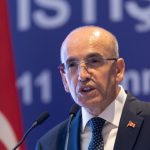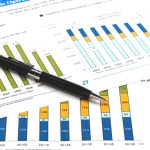
By Orathai Sriring
BANGKOK (Reuters) – After months of withstanding political pressure and public bickering, Thailand’s central bank on Wednesday delivered what the country’s government had been pressing for: it cut its key interest rate, the first reduction since 2020.
Now comes the hard part for Prime Minister Paetongtarn Shinawatra, an untested leader whose ruling Pheu Thai party has struggled to fire up the economy since it took office last year and placed its bets on a major cash handout programme.
Having lost the BOT as a whipping boy, it is up to Paetongtarn’s government to deliver the goods – but the odds appear stacked against it.
“Of course, this time there are no excuses. The government must continue to stimulate the economy fully,” said Natapon Khamthakrue, an analyst at Yuanta Securities.
Bogged down by massive household debt, lacklustre consumer spending and plummeting industrial sentiment, Southeast Asia’s second-largest economy faces an extended period of headwinds after growing 2.3% year-on-year in the second quarter, analysts said.
“The slowdown in economic growth is far from over,” said Miguel Chanco, chief emerging Asia economist at Pantheon Macroeconomics, forecasting a slide in GDP growth to just 2% next year.
The Bank of Thailand (BOT) itself cut its 2025 GDP growth projection to 2.9% from its earlier forecast of 3%, although the economy was expected to grow 2.7% this year, higher than the 2.6% it had previously forecast but lagging its Asian peers.
The central bank also emphasised that Wednesday’s 25-basis-point rate cut wasn’t the start of an easing cycle, describing it as a “recalibration” that was not triggered by political pressure.
Key growth engines of the Thai economy, including the critical automobile industry, are sputtering and the country of 66 million people is seeing a wave of factory closures that is upending its manufacturing sector.
In September, Thailand’s industrial sentiment index hit a 27 month-low due to soft domestic demand, floods that ravaged the country’s north and a strong baht currency.
“Thailand has experienced the slowest recovery of any country in the region from the pandemic,” said Gareth Leather, Senior Asia Economist at Capital Economics, which expects another rate cut in December.
“GDP is only just above pre-crisis levels, and growth is likely to remain subdued over the coming months as weaker global demand and slower growth in tourism weigh on the recovery.”
INFLATION AND FRICTION
Thailand’s youngest ever premier, Paetongtarn, 38, took office in August following the shock dismissal of her predecessor, Srettha Thavisin, a property tycoon who attempted to resuscitate the flagging economy during his year-long term.
“If there are no financial and fiscal measures to support economic growth, it is expected that the country’s economic growth rate will not exceed 3% per year,” she told parliament last month, promising to act with urgency.
In late September, the government rolled out the first phase of the flagship $14 billion stimulus handout scheme, which aims to deliver 10,000 baht ($300) each to around 45 million people.
“The pressure is now on Paetongtarn who will have to ensure the digital wallet handout is not watered down because other big injections will take time,” said Ben Kiatkwankul, partner at strategic advisory, Maverick Consulting Group.
On Thursday, a day after the BOT’s surprise cut, Finance Minister Pichai Chunhavajira said that the rate reduction will help increase liquidity and confidence, but called for a higher inflation target that will push up consumer prices.
BOT chief Sethaput Suthiwartnarueput and Pichai are in the process of settling on an inflation target for 2025, with the government pushing for a review of the 1-3% target range, which has been in place since 2020.
Annual headline inflation stood at just 0.61% in September, highlighting tepid demand.
“We want to see inflation higher than now,” Pichai told reporters, “A higher inflation target will help.”
Another point of friction is the appointment of a chairman for the BOT board, with the government nominating last month a ruling party loyalist and critic of the central bank governor for the position to bolster its influence on the institution.
“The chair would have a say in the composition of the MPC as well as the appointment of the next BOT governor,” Maybank said in a note, referring to the Monetary Policy Committee that votes on key interest rates.
Sethaput’s term ends next September.
($1 = 33.23 baht)






